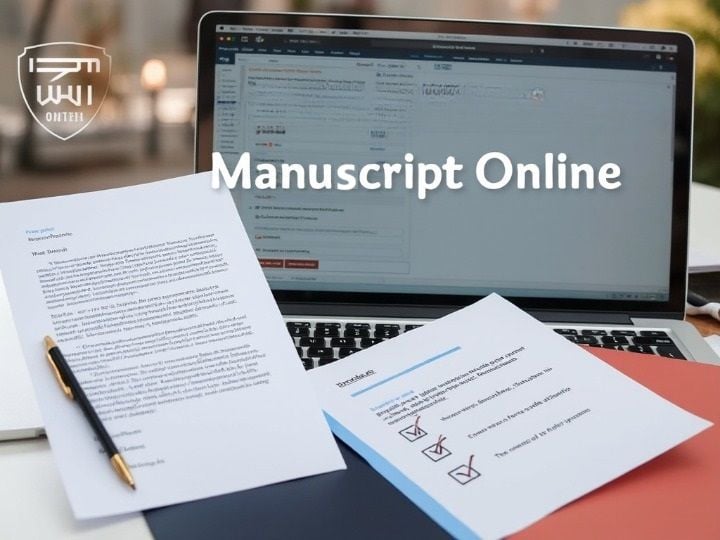Learn the value of beta readers in refining your manuscript, how to find them, manage feedback, and craft stories that connect with readers.
Introduction
Beta readers play a vital role in a writer’s journey, providing early feedback on a draft before it goes to publishing or professional editing. For many authors, early readers serve as the first audience, offering valuable insights that shape the story, polish the characters, and refine the narrative. Whether you’re a seasoned author or a first-time writer, using early readers effectively can significantly enhance the quality of your book. In this article, we’ll explore what pre-publication readers do, how to find beta readers, and the ideal number of early readers for any project.

What Are Beta Readers?
Beta readers are individuals who read a draft manuscript and provide feedback on various aspects, such as plot, character development, pacing, and consistency. Unlike professional editors, early readers approach the manuscript as regular readers, making their feedback especially valuable in gauging how an audience might react to the book. Writers often turn to beta readers to help refine their work before it goes into the editing phase, making early readers an indispensable part of the publishing process.
By understanding what Draft Readers offer, writers can gain fresh perspectives and spot elements they might have overlooked. As a writer, it’s essential to communicate clearly with your early readers, guiding them on the type of feedback you’re seeking. Many writers find that feedback from readers often reveals issues in the manuscript, such as plot holes, confusing passages, or character inconsistencies.
Benefits of Working with Beta Readers
Engaging with beta readers can transform a rough draft into a polished, reader-ready manuscript. Here are some core benefits:
- Objective Feedback: Because beta readers are not emotionally attached to the story, they provide honest, unbiased opinions. This objectivity helps writers see their work through a different lens and make necessary changes.
- Identifying Weak Points: Beta readers can point out aspects of the manuscript that might be confusing, irrelevant, or in need of development. They also highlight sections that might not resonate with readers, giving authors a chance to make adjustments.
- Improving Storytelling: Through beta readers’ feedback, authors can identify what is working well and what isn’t, allowing them to improve pacing, tension, and overall narrative structure. This can be particularly helpful in fine-tuning dialogue, enhancing descriptions, or tightening prose.
- Broadening Audience Appeal: Beta readers often reflect a diverse audience, which helps writers ensure that their work will appeal to a broader demographic. By working with Story Testers, authors can make adjustments to maximize reader engagement across various backgrounds.
You might be interested in reading this topic as well.
How to Find Test Readers
Finding test readers might seem challenging, but with the right approach, authors can build a team that truly enhances their work. Here are some popular ways to connect with potential test readers:
- Writing Communities: Online platforms like Goodreads, Reddit, or dedicated writing forums are excellent places to meet readers interested in test reading. These communities often have beta reader groups where writers and readers can connect.
- Social Media: Facebook groups, Twitter hashtags, and Instagram communities for writers and readers are valuable resources for finding test readers. Many writers have successfully recruited beta readers by sharing a call for assistance on their social media profiles.
- Beta Reader Services: For authors looking for more structured feedback, there are professional services that connect writers with experienced test readers. Although this option typically comes with a fee, the feedback is often highly detailed and tailored to the author’s needs.
- Personal Network: Sometimes, friends, family members, or colleagues can be reliable beta readers, especially if they’re familiar with your genre. However, it’s essential to find readers who will provide honest feedback rather than simply praise.
When searching for test readers, consider their reading preferences, familiarity with your genre, and willingness to provide constructive criticism. It’s also helpful to clarify expectations early on, so your beta readers understand what you’re looking for in their feedback.
How Many Beta Readers Should I Have?
One of the most common questions authors ask is, “How many beta readers should I have?” While there isn’t a set number, having a diverse group can yield more comprehensive feedback. Ideally, a writer should aim for 3-5 beta readers who bring various perspectives. Here’s why:
- Balanced Feedback: With a small, varied group, you’ll receive diverse opinions, allowing you to identify any common issues. If multiple readers point out the same problem, it’s likely something you’ll want to address.
- Easier Management: Too many beta readers can become overwhelming, making it difficult to synthesize and manage feedback. A smaller group allows authors to review feedback in-depth and apply changes as needed without feeling overwhelmed.
- Focused Revisions: A limited number of test readers means fewer, yet more focused, revisions. Each reader’s comments become more meaningful, as they’re less likely to get lost in a sea of feedback.
Tips for Working Effectively with Pre-Publication Readers
Once you’ve found your Pre-Publication readers, here are a few tips to make the most of their feedback:
- Provide Clear Guidelines: Explain what type of feedback you’re looking for. For instance, you might want feedback on pacing, character believability, or plot coherence. Clear guidelines help your pre-publication readers focus their feedback on the areas you’re most concerned about.
- Stay Open to Criticism: Remember, beta readers are there to help you improve. Embrace constructive criticism and avoid getting defensive. Consider all feedback carefully, even if it’s not what you expected.
- Give Reasonable Deadlines: Set realistic deadlines that allow early readers to give detailed feedback without feeling rushed. Giving them enough time ensures they can provide thoughtful and useful responses.
- Express Appreciation: Readers volunteer their time and effort, so be sure to thank them for their contributions. A little appreciation goes a long way in building lasting relationships with readers who may want to help with future projects.
The Difference Between Beta Readers and Professional Editors
While beta readers and editors both play a role in shaping a manuscript, their functions differ significantly. This readers approach a book as average readers, noting what resonates with them and what doesn’t. Their focus is on the overall reading experience rather than technical details. Editors, on the other hand, examine a manuscript with a professional eye, focusing on structure, language, and technical accuracy.
Because of this difference, it’s best to seek feedback from early readers before hiring a professional editor. Their input will help you create a well-rounded draft, which can then be refined further with editorial expertise.
Why Beta Readers Are Essential for Any Writer
Using beta readers in the writing process gives authors an invaluable glimpse into how readers will experience their work. This insight is particularly important in genres with unique audience expectations, such as fantasy, mystery, or romance. By incorporating test readers’ feedback, writers can fine-tune their stories, addressing potential issues before submitting their work to editors or publishers.
Beta readers not only help enhance the story itself but also encourage authors to keep refining their craft. For writers aiming to create impactful, reader-centric work, pre-publication readers are an essential asset.
You might be interested in reading How to Live as a Writer in a Fantasy World as well.
Take Your Writing to the Next Level
Engaging with early readers is an investment in the quality and impact of your work. These first readers offer a fresh perspective, helping you shape your manuscript to resonate with your target audience. Whether you’re a first-time author or an experienced writer, the feedback from pre-publication readers can bring out the best in your story.
For more insights on improving your manuscript, consider joining our community, sharing your journey, and connecting with others passionate about writing. Every great book starts with a great first audience, so don’t hesitate to find your beta readers and take your work to new heights!







